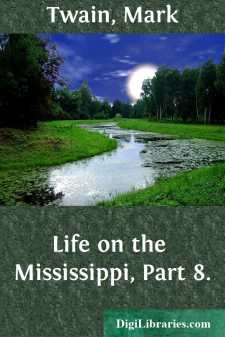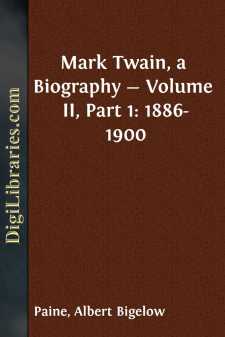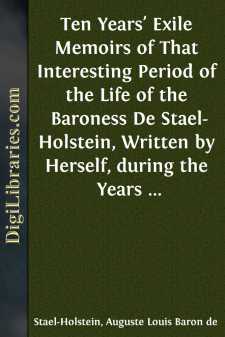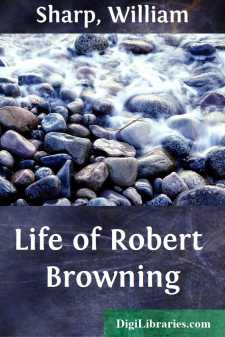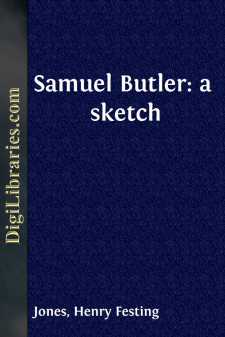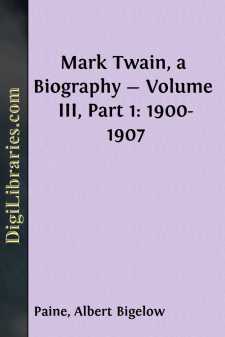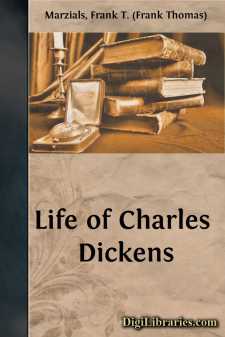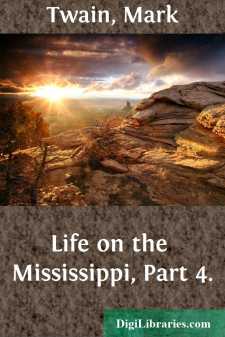Biography & Autobiography
- Adventurers & Explorers 15
- Artists, Architects, Photographers 16
- Business 2
- Composers & Musicians 14
- Criminals & Outlaws 5
- Editors, Journalists, Publishers 6
- Educators 1
- Entertainment & Performing Arts 3
- General 73
- Health, Exercise & Fitness 1
- Historians 3
- Historical 83
- Law Enforcement 1
- Lawyers & Judges 3
- Literary
- Medical 7
- Military 48
- Naturalists, Gardeners, Environmentalists 8
- Personal Memoirs & Diaries 226
- Philosophers 3
- Political 9
- Presidents & Heads of State 38
- Religious 38
- Rich & Famous 27
- Scientists 13
- Women 31
Literary Books
Sort by:
by:
Mark Twain
Chapter 36 The Professor's Yarn IT was in the early days. I was not a college professor then. I was a humble-minded young land-surveyor, with the world before me—to survey, in case anybody wanted it done. I had a contract to survey a route for a great mining-ditch in California, and I was on my way thither, by sea—a three or four weeks' voyage. There were a good many passengers, but I had...
more...
MARK TWAIN AT FORTY In conversation with John Hay, Hay said to Clemens: "A man reaches the zenith at forty, the top of the hill. From that time forward he begins to descend. If you have any great undertaking ahead, begin it now. You will never be so capable again." Of course this was only a theory of Hay's, a rule where rules do not apply, where in the end the problem resolves itself into...
more...
CHAPTER 1. Causes of Bonaparte's animosity against me. It is not with the view of occupying the public attention with what relates to myself, that I have determined to relate the circumstances of my ten years' exile; the miseries which I have endured, however bitterly I may have felt them, are so trifling in the midst of the public calamities of which we are witnesses, that I should be...
more...
by:
Stapleton Martin
ANNA SEWARD Anna Seward, a daughter of the Rev. Thomas Seward, destined to become, by universal assent, the first poetess of her day in England, was born 12th December, 1747. Her mother was Elizabeth, one of the three daughters of the Rev. John Hunter (who was in 1704 appointed Head Master of Lichfield Grammar School), by his first wife, Miss Norton, a daughter of Edward Norton, of Warwick, and...
more...
by:
William Sharp
CHAPTER I. It must, to admirers of Browning's writings, appear singularly appropriate that so cosmopolitan a poet was born in London. It would seem as though something of that mighty complex life, so confusedly petty to the narrow vision, so grandiose and even majestic to the larger ken, had blent with his being from the first. What fitter birthplace for the poet whom a comrade has called the...
more...
Samuel Butler: A Sketch Samuel Butler was born on the 4th December, 1835, at the Rectory, Langar, near Bingham, in Nottinghamshire. His father was the Rev. Thomas Butler, then Rector of Langar, afterwards one of the canons of Lincoln Cathedral, and his mother was Fanny Worsley, daughter of John Philip Worsley of Arno’s Vale, Bristol, sugar-refiner. His grandfather was Dr. Samuel Butler, the...
more...
THE RETURN OF THE CONQUEROR It would be hard to exaggerate the stir which the newspapers and the public generally made over the homecoming of Mark Twain. He had left America, staggering under heavy obligation and set out on a pilgrimage of redemption. At the moment when this Mecca, was in view a great sorrow had befallen him and, stirred a world-wide and soul-deep tide of human sympathy. Then there had...
more...
by:
Samuel Holt Monk
INTRODUCTION. The Rowe-Tonson edition of Shakespeare's plays (1709) is an important event in the history of both Shakespeare studies and English literary criticism. Though based substantially on the Fourth Folio (1685), it is the first, "edited" edition: Rowe modernized spelling and punctuation and quietly made a number of sensible emendations. It is the first edition to include dramatis...
more...
CHAPTER I. Education is a kind of lottery in which there are good and evil chances, and some men draw blanks and other men draw prizes. And in saying this I do not use the word education in any restricted sense, as applying exclusively to the course of study in school or college; nor certainly, when I speak of prizes, am I thinking of scholarships, exhibitions, fellowships. By education I mean the...
more...
by:
Mark Twain
Chapter 16 Racing Days IT was always the custom for the boats to leave New Orleans between four and five o'clock in the afternoon. From three o'clock onward they would be burning rosin and pitch pine (the sign of preparation), and so one had the picturesque spectacle of a rank, some two or three miles long, of tall, ascending columns of coal-black smoke; a colonnade which supported a sable...
more...


